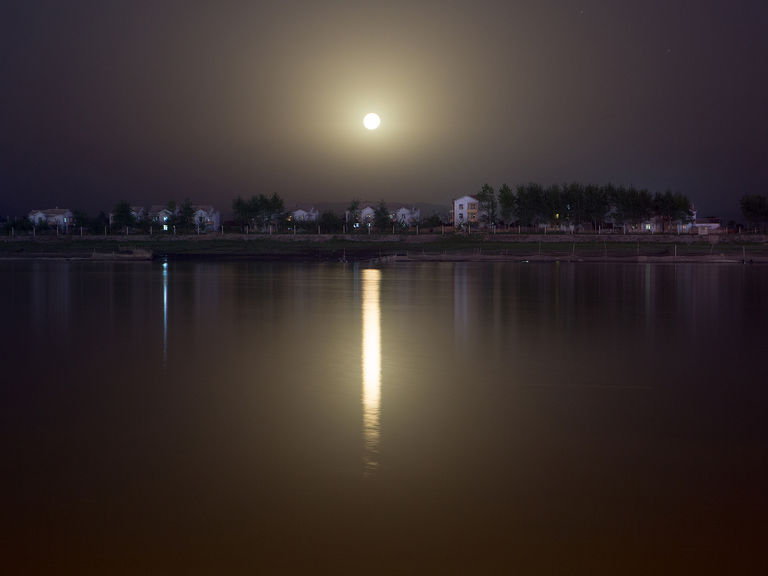Project Detail: Awakenings
Contest:
Swiss Storytelling Photo Grant 9th
Brand:
LuganoPhotoDays
Author:
Filippo Venturi
Project Info
Awakenings
North Korea is a socialist state in which, formally, elections are held but, in reality, it is a totalitarian dictatorship based on the cult of the Kim dynasty. The country has the most hermetic regime in the world, where citizens are bombarded with propaganda in an attempt to indoctrinate them and distance them from reality. Without the Internet and with the mass media – newspapers, television programmes and films – being controlled by the government through a system that insists that North Korea is the best of all possible worlds, it is difficult for the population to imagine an alternative. Despite this, every year some North Koreans, mostly women, attempt to flee in search of a better life for themselves and their families. Since 1999, more and more North Koreans have managed to flee the country. As of 2020, a total of 33,752 North Koreans had arrived in South Korea, and about 70 percent were women.
Awakenings (South and North Korea, China, 2015-2022)
2023 will be the 70th anniversary of the end of the Korean War. Officially, South Korea and North Korea are still at war because, after the signing of the Panmunjom armistice on 27 July 1953, a formal peace treaty was never ratified.
North Korea is a socialist state in which, formally, elections are held but, in reality, it is a totalitarian dictatorship based on the cult of the Kim dynasty. The country has the most hermetic regime in the world, where citizens are bombarded with propaganda in an attempt to indoctrinate them and distance them from reality. Without the Internet and with the mass media – newspapers, television programmes and films – being controlled by the government through a system that insists that North Korea is the best of all possible worlds, it is difficult for the population to imagine an alternative.
Despite these constant efforts by the regime to isolate the population from any information outside the country, some North Koreans are aware of the situation and their lack of future prospects, so they try to rebel by fleeing across the border.
Along the 38th parallel, South Korea and North Korea share a 250-kilometre-long border, known as the Korean DMZ, a demilitarised zone that acts as a buffer. However, just beyond the DMZ, each side of the border, is one of the most militarised areas in the world. This makes crossing the border very dangerous and, therefore, impractical for the North Koreans who decide to flee the country.
Since the 1990s, there has been a black market (Jangmadang) in existence in North Korea that is essential for the survival of the population (which is why it is tolerated by the regime), which includes the illegal importation of goods from abroad. This allows the North Koreans involved in this market to come into contact with foreign products and get a glimpse of a very different and prosperous way of life. Since this market is not monitored as closely as other official work, in which men are generally employed, it is often the prerogative of women. As a result, women find themselves with more opportunities to evade surveillance and attempt to flee the country.
The problem that most worries North Korean women is feeding themselves and their family members. According to the study “Suffering in Silence” by CARE International(1), it is estimated that two out of five people in the country are malnourished and the most vulnerable groups are women and children.
The famine that struck North Korea from 1994 to 1998 [also known as the Arduous March], causing between 600,000 and 3 million deaths – due to the fall of the USSR and, consequently, the disappearance of its essential support, but also due to natural disasters, such as floods and drought, and inadequate domestic economic planning – was, for many North Koreans, a watershed in their already difficult existence, prompting a part of the population to rely on traffickers and people smugglers to reach China and other Asian countries.
In recent years, due to restrictions brought about by the COVID-19 pandemic, which has also affected North Korea despite the tendency of the authorities there to deny it, border controls have become much more stringent and the death penalty is now among the punishments for captured fugitives.
North Koreans who flee the country are called defectors. The same definition is used in the South, although, strictly speaking, it is not correct, since North Koreans very often do not seek refuge due to political dissent but because of extreme poverty(2). Another definition used is northern refugees.
According to a report by the Norwegian Refugees Council(3), since 1999, an increasing number of North Koreans have managed to flee the country, often crossing the Tumen and Yalu rivers, on the border with China, a country that many consider an intermediate stage on the journey that will take them to South Korea. As of 2020, a total of 33,752 North Koreans has arrived in South Korea (4) and about 70% were women (in 2018, of the 1,137 North Koreans who arrived in South Korea, about 85% were women). Overall, it is estimated that between 100,000 and 300,000 North Koreans have defected since 1953, most of whom have fled to Russia or China(5).
Although China has signed the United Nations Convention relating to the Status of Refugees, the Chinese government views these individuals as economic migrants without a residence permit and without the possibility of seeking asylum. Captured North Koreans are therefore forced to return to North Korea, where they are locked up in labour camps or executed. North Korean women in China often end up victims of human trafficking, sold as wives, treated like property or forced into prostitution. For many North Koreans, China is an obligatory stop when trying to reach one of the countries where support is provided in their effort to reach South Korea or where it is possible to ask for help from the South Korean embassy (for example, in Mongolia or Thailand).
North Koreans who manage to reach South Korea are monitored and interrogated, in order to ascertain whether they are possible infiltrators rather than real victims of the regime. Subsequently, they undergo a training course through the Hanawon, a sort of education programme which, in the space of a few months, explains the South Korean version of the war and the subsequent political and social events to them, as well as providing them with basic – albeit unknown to the defectors – social skills, such as how to use ATMs. At the end of this phase, they are given citizenship and financial support to facilitate their integration into society.
Many North Koreans suffer from deep trauma linked to their escape and feelings of guilt about relatives left to the mercy of the regime and possible retaliation against them. The integration process is a very delicate phase, due to the difficulties in adapting to a completely unknown reality, in which they can suffer from the sense of disorientation that comes from being in a country whose government does not decide every aspect of your life and where they may also experience discrimination from South Korean citizens.
In some cases, North Koreans manage to communicate with relatives left behind in North Korea through Chinese brokers near the border who offer their services to send messages or telephone calls. Those who manage to communicate in this way often prefer not to disclose it, to avoid repercussions on family members by the North Korean authorities. These Chinese brokers also make it possible for individuals to send money to relatives in North Korea but deduct up to 50% of the initial amount as a fee.
This project was created thanks to the fundamental support of the non-governmental organisation PSCORE (People for Successful COrean REunification), based in Seoul (South Korea) and in Washington (United States of America). Founded in 2006 by young North Korean defectors, South Korean university students and foreigners interested in improving human rights in North Korea and the reunification of the Korean peninsula, it aims at creating harmony and understanding between the two Koreas through educational programmes, awareness campaigns and discussion groups. It also deals with facilitating the integration of North Koreans into South Korean society.
(1) https://www.care-international.org/files/files/01202020_Report_Suffering%20In%20Silence%202019_web%20version.pdf
(2) https://core.ac.uk/reader/161446200
(3) https://www.nrc.no/news/2018/february/ten-things-you-should-know-about-refugees-from-north-korea/
(4) https://www.csis.org/analysis/number-north-korean-defectors-drops-lowest-level-two-decades
(5) http://www.northkoreanrefugees.com/aboutus.html


















